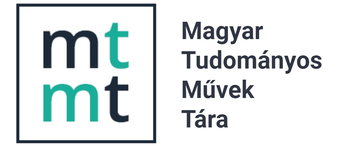Harnessing regulation for circular economy advancement: Identifying breakthrough areas in the European Union and Hungary
Abstract
The prevailing linear economic model, characterized by resource extraction, production, consumption, and disposal, is unsustainable and poses significant environmental and social challenges. The circular economy (CE) has emerged as a transformative paradigm emphasizing resource efficiency, waste minimization, and closed-loop production systems. This paper provides a comprehensive overview of the CE concept, its potential benefits and challenges, and the regulatory frameworks enacted by the European Union (EU) and Hungary to facilitate the transition towards a circular economy. In order to facilitate this, the authors also propose specific regulatory steps based on a systematic concept.
References
Barański M, Jaworska K & Piszczek A (2023) „Bumpy way” to green transformation iFrancan Poland. Government passivity and search for solutions in labour, in: Sariipek D & B. Franca (eds.) Bursa, pp. 329–356.
Bundesministerium für Umwelt- Naturschutz und Reaktorsicherheit (2012) Fragen und Antworten zur Pfandpflicht, https://docs.google.com/viewer?url=http://www.bmu.de/files/pdfs/allgemein/application/pdf/pfandpflicht_faq_de_bf.pdf [07.10.2012]
Clamba V (2023) Itt a szén-dioxid kvóta adó, https://www.rsm.hu/blog/adotanacsadas/2023/07/itt-a-szen-dioxid-kvota-ado [20.10.2023]
Csák Cs (2022) A vállalatok környezeti felelőssége a compliance irányába tett lépések tükrében, Miskolci Jogi Szemle 2022/5, pp. 76–83.
Csák Cs & Nagy Z (2020) A környezeti és pénzügyi fenntarthatóság: avagy a környezetjog és a pénzügyi jog egyes kapcsolódási pontjai, Miskolci Jogi Szemle 2020/3, pp. 38–50.
Csokonay J (2005) Az egyutas csomagolásokra előírt betétdíj következményei Németországban, in: https://docs.google.com/viewer?url=http://dokutar.omikk.bme.hu/collections/mgi_fulltext/hull/2005/03/0301.pdf [07.10.2012]
Ellen MacArthur Foundation (2023) What is the circular economy?, https://www.ellenmacarthurfoundation.org/topics/circular-economy-introduction/overview [30.10.2023]
European Commission (2023) Circular economy action plan, https://environment.ec.europa.eu/strategy/circular-economy-action-plan_en [30.10.2023]
Európai Parlament (2021) Hogyan valósítaná meg az EU a körkörös gazdaságot 2050-re?, https://www.europarl.europa.eu/news/hu/headlines/society/20210128STO96607/hogyan-valositana-meg-az-eu-a-korkoros-gazdasagot-2050-re [30.10.2023]
Európai Parlament (2023) Körforgásos gazdaság: mit jelent, miért fontos és mi a haszna?, https://www.europarl.europa.eu/news/hu/headlines/priorities/society/20151201STO05603/korforgasos-gazdasag-mit-jelent-miert-fontos-es-mi-a-haszna [30.10.2023]
Gerzsenyi G (2004) Riótól Kiotóig, és azon túl – Az éghajlatváltozással kapcsolatos nemzetközi, uniós és magyar jogalkotás, Európai Jog 2004/2, pp. 17–18.
Fodor L (2019) A falu füstje, Gondolat Kiadó, Budapest.
Fodor L (2015) Környezetjog, Líceum Art, Debrecen.
Hornyák Zs & Lindt R (2023) Liability rules protecting waste management in the light of the right to a healthy environment, Journal of Agricultural and Environmental Law (18)35, pp. 31–48, https://doi.org/10.21029/JAEL.2023.35.31
Hulladék munkaszövetség (2012) Az a kincs ami nincs, https://docs.google.com/viewer?url=http://www.humusz.hu/download/kincs_ami_nincs/2resz/kincs_ami_nincs_2.pdf [07.10.2012]
Jakab N (2022) Méltányos átállás elméletben és gyakorlatban, Publicationes Universitatis Miskolcinensis Sectio Juridica et Politica 2022/2, pp. 237–249.
Kirchherr J, Reike D & Hekkert M (2017) Conceptualizing the circular economy: An analysis of 114 definitions, Conservation Resources and Recycling 127, pp. 221–232, https://doi.org/10.1016/j.resconrec.2017.09.005
Mohu (2023) 2024-től új italcsomagolás visszaváltási rendszer lesz Magyarországon, https://mohu.hu/media/hirek/2024-januar-1-tol-uj-italcsomagolas-visszavaltasi-rendszer-lesz-magyarorszagon.html [11.12.2023]
Müller G (2023) Vision - we need to broaden the discussion on the circular economy. United Nations Industrial Development Organization, https://www.unido.org/stories/vision-we-need-broaden-discussion-circular-economy [30.10.2023]
Nagy Z (2010) A környezetvédelem pénzügyi jogi kérdései, in: Nagy Z, Olajos I, Raisz A & Szilágyi J E (eds.) Környezetjog II., Novotni Alapítvány, Miskolc, pp. 73.
Németh K (2021) A körforgásos gazdaság alapjai, Pannon Egyetemi kiadó Veszprém.
Nyist Cs (2023) A körforgásos gazdaság hatásai az EU 2050 Stratégia tükrében, https://www.isoforum.hu/media/programnaptar/files/4NyistCseav3.pdf [30.10.2023]
Olajos I (2016) The legal problems related to the re-use of metallic wastes, Journal of Agricultural and Environmental Law (11)20, pp. 91–113, https://doi.org/10.21029/JAEL.2016.20.91
Pál K (2007) A műanyaghulladék feldolgozása Európában, https://docs.google.com/viewer?url=http://www.muanyagipariszemle.hu/2007/05/a-muanyaghulladek-ujrafeldolgozasa-europaban-16.pdf [07.10.2012]
Szunyog I & Vadászi M (2023) A fenntartható fosszilis- és megújulóenergia-gazdálkodás a nemzeti energia- és klímastratégia alapján, in: Somosi M., Sikos T. T (eds.) A fenntarthatóság holisztikus megközelítésben Budapest, Akadémiai Kiadó, Budapest.
Friderikusz Podcast (2023) The harassment of endorsement? András Gelencsér and Zoltán Pogátsa's debate on non-growth, https://www.youtube.com/watch?v=_P2zgMHahsU [21.09.2023]
World Economic Forum (2022) Circular economy: What is the circular economy, and why does it matter that it is shrinking?, https://www.weforum.org/agenda/2022/06/what-is-the-circular-economy/ [30.10.2023]












